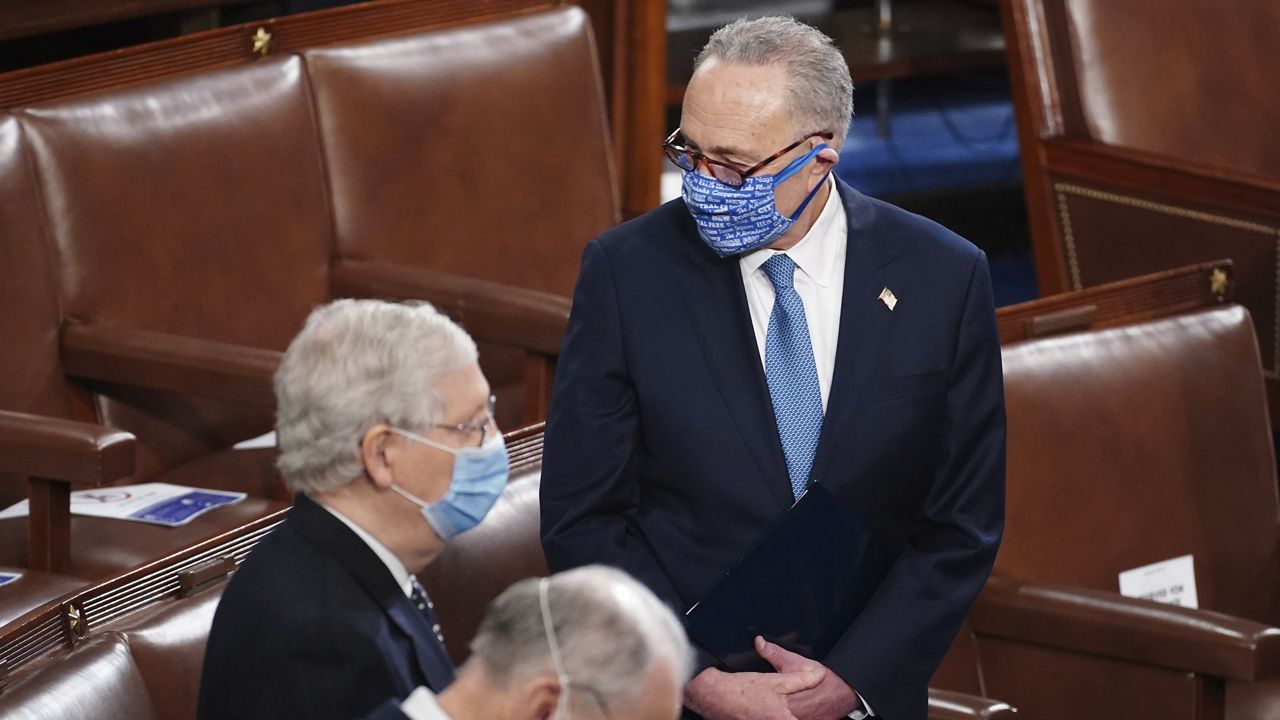Senate Majority Leader Chuck Schumer announced on the Senate floor Wednesday that he and Minority Leader Mitch McConnell have reached a power-sharing agreement for the evenly divided Senate.
"I am happy to report," the New York Democrat said, "that the leadership of both parties have finalized the organizing resolution for the Senate. We will pass the resolution through the Senate today, which means that committees can promptly set up and get to work with Democrats holding the gavels."
The final agreement on the organizing resolution comes one month after the new Congress was gaveled into session on Jan. 3.
The agreement was passed Wednesday with unanimous consent, meaning that Democrats will now assume the committee chairmanships.
Schumer said that the climate crisis will be a major focus of the legislature once the Democrats assume the chairmanships: "I’ve already instructed the incoming Democratic chairs of all relevant committees to begin holding hearings on the climate crisis."
The Majority Leader said that he is "confident our members are ready to hit the ground running on the most important issues that face our country."
This move could resolve some of the outstanding issues of the Senate, including the public spat between Sens. Lindsey Graham (R-SC) and Dick Durbin (D-IL) over the timing of hearings for President Joe Biden's nominee for Attorney General, Merrick Garland.
"I find it regrettable that we have been unable to reach agreement on a timeline for processing this nomination,” Durbin wrote. "While I remain committed to working with you and Senator Grassley, the Committee’s incoming Ranking Member, to find bipartisan consensus on timing, there is simply no justification for delaying Judge Garland’s hearing any further."
Graham rejected Durbin’s request for a speedy hearing for Garland, writing in a letter that the move was "highly unusual" as the Senate prepares for “its first ever impeachment trial of a former president, and only its fourth trial of a president, incumbent or not.”
"An impeachment is no small thing. It requires the Senate’s complete focus,” Graham continued. “This is why I didn’t consider any judicial nominees during last year’s impeachment trial. Democrats do not get to score political points in an unprecedented act of political theater on one hand while also trying to claim the mantle of good government on the other.”
Graham did say while he agreed Garland deserved a “prompt” hearing, it would not take place on Feb. 8.
Durbin criticized Graham’s decision during a speech on the Senate floor Tuesday afternoon, saying Garland’s confirmation was in the best interests of national security.
"Despite the unresolved nature of the Senate’s organizing resolution," Durbin said at the time, "other senate committees have come together on a bipartisan basis to schedule prompt hearings and votes for nominees. We need to do the same when it comes to the nomination of Merrick Garland to attorney general. Why would we let partisanship get in the way of national security?”



